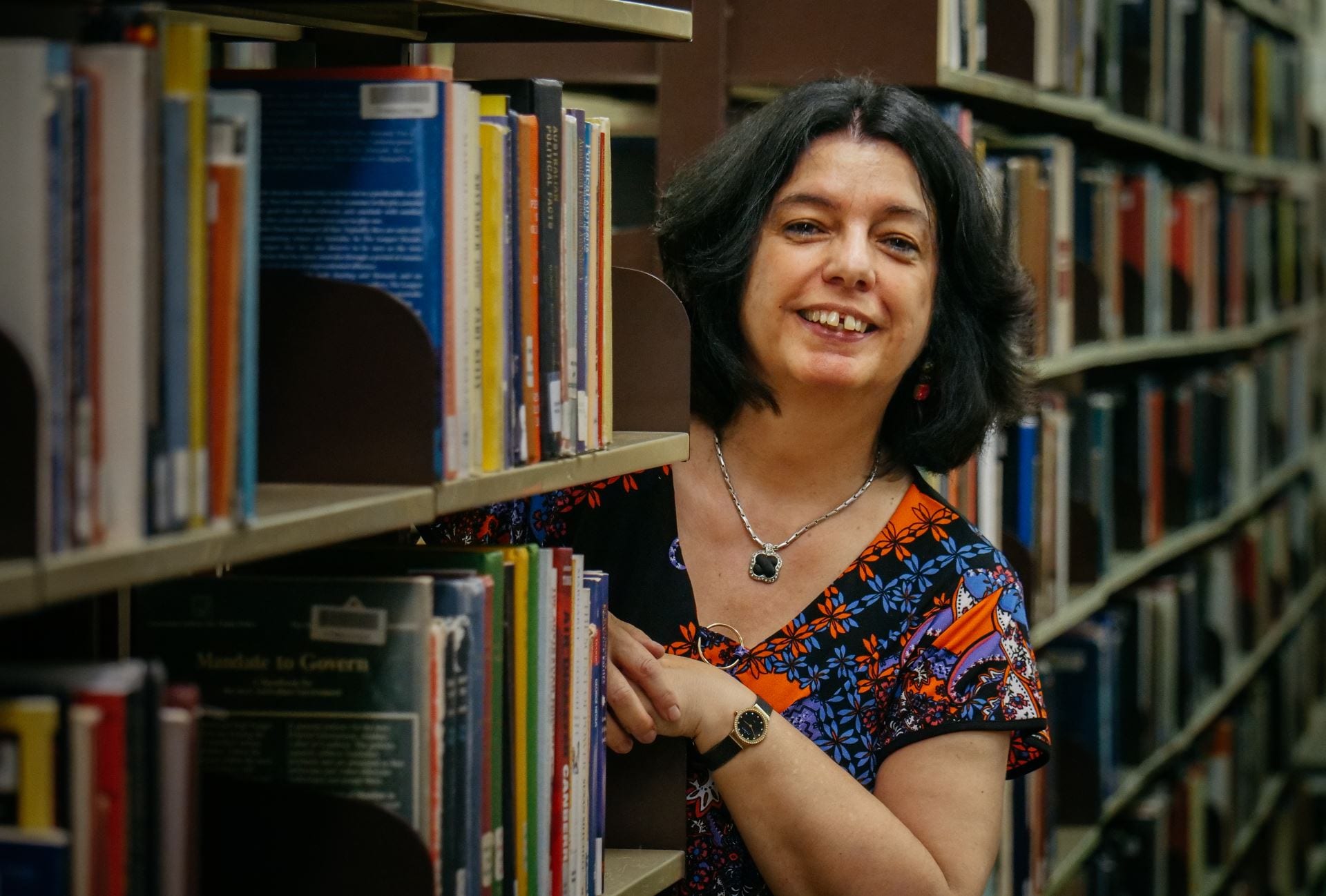Sophie Masson, Australian author of more than 60 books for children, young adults and adults, will graduate with a PhD at UNE after successfully completing a novel, ‘The Ghost Squad’, for her thesis. Sophie was supported every step of the way by her principal supervisor, Dr Yvonne Griggs.
Sophie:
I was writing from a very young age. I loved stories and read a lot. I was part of a big family. I’d put on plays and force my siblings to be actors in them. It was a good grounding for my career as a writer.
In high school, I found out how to go about preparing a manuscript for a publisher. I also started to send poems I’d written to some established Australian poets. They were very generous in their feedback and encouragement. I’ve always remembered this and try to do the same.
The third complete manuscript I wrote was accepted by a publisher while I was studying a Bachelor of Arts at UNE. I completed a Master of Letters, in French and English, and felt a PhD might be useful one day, but couldn’t commit to it with three young kids.
By the time my children left home, I had published around 60 children’s books and novels. But I really began to think about a novel I’d been wanting to write for a long time. The concept was quite complex and I knew I would struggle to concentrate on this big, ambitious novel on my own. Also, lots of my friends were established authors who had done a creative PhD in recent times and enjoyed it.
I was a little bit nervous when I started my PhD studies. I was afraid people might wonder what I was doing – I was an established author, but I knew very little about academic writing. I was a nobody in this area.
I know it seems silly, but I was extremely pleasantly surprised that my fears weren’t justified. People were really helpful at UNE. The sheer encouragement, support and intelligent guidance from academic, administrative or research services staff was phenomenal, and made me much more confident. And I was lucky enough to be awarded two scholarships – the APA and UNE Top Up Scholarships – which meant I could concentrate fulltime on my PhD.
My principal supervisor, Yvonne Griggs, really got what I was doing and helped me focus in on things. Her particular strength in screen writing also challenged me to think about narrative in different ways.
It was wonderful to have Yvonne as a first reader for my work, and also to have many really helpful suggestions from my co-supervisor, Anne Pender. I also showed Yvonne any journal and conference papers I was writing, including when I had the incredible opportunity to go to the University of Cambridge as a visiting scholar, thanks to a Keith and Dorothy Mackay Travelling Scholarship.
Having three years to work on my novel and an exegesis to guide and challenge the creative work was just brilliant, and has really benefited my writing. I wish I could work like this all the time!
Yvonne:
I was first approached to supervise Sophie’s project as I had personal experience with the creative practice pathway to a PhD. I write screenplays, Sophie’s project focuses on young adult fiction. But the concept she explores (the afterlife) is very much of the moment in TV narratives and that provided another shared point of interest.
I was fascinated by the complexity of the idea and keen to see how Sophie would make it accessible to a young audience.
Supervising Sophie was a lovely experience because it felt like a shared enterprise. I was given access, one instalment at a time, to her unfolding story world. I could provide an outside perspective: when things didn’t seem clear to me as a reader, Sophie was always ready to take that on board and to revise her ideas.
We’d meet to talk through her most recent piece of writing, plan for the next phase and discuss how the research was informing the shape of the novel. We’d also look at ways to raise her academic profile alongside her already established author profile: we’d look at grant possibilities and upcoming conferences where she could present her work before seeking publication in peer-reviewed journals.
I enjoyed watching Sophie’s confidence grow in terms of her academic endeavours. She was always keen to stretch herself and pursue new ideas. I could see the shape of the novel evolving in response to the research and that’s exactly how it should be.
Sophie emerged from the project with an impressive academic profile that she can build on. I always encourage PhD students to pursue publication as part of the study process and Sophie’s exegesis has already generated numerous publications in peer-reviewed journals in her field of expertise. That’s impressive.
Her novel, too, is a huge success. It will no doubt be picked up by publishers, and it also has the makings of an excellent TV series! Of course, I’m keen to see Sophie’s writing applied to this area too, and given our strong working relationship built up over the past three years, I’m sure we’ll be collaborating on that one in the near future – this time as colleagues, rather than student and supervisor.



Recent Comments